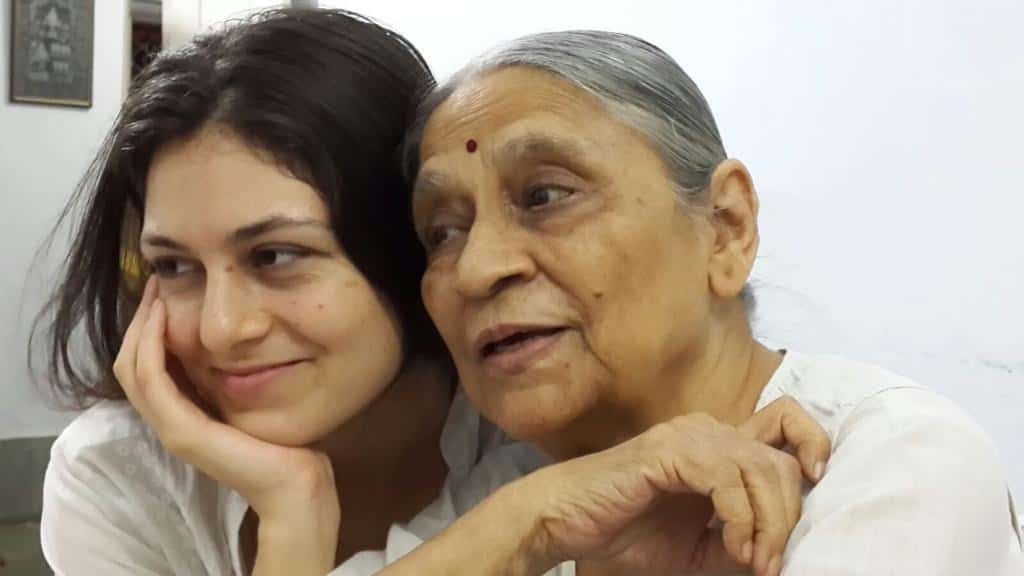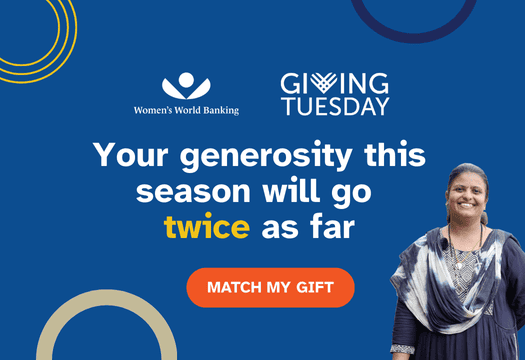On any given day, you’ll find Maya Potter deep in conversation—interviewing men, women, and girls from all walks of life. From small-town revitalization to the rise of AI, from fandom to online bullying, her work is rooted in listening deeply and with purpose.
It’s a way of working that feels revolutionary in its humility, and it’s also in her blood.
Maya is the granddaughter of Ela Bhatt, the visionary founder of the Self-Employed Women’s Association (SEWA) and one of Women’s World Banking’s founding members. She carries forward her grandmother’s legacy of radical empathy and grassroots wisdom—but not by replicating it. Maya is reshaping it for a new generation, where culture, data, and complexity demand new tools and new voices.

“I wish I could recall a dramatic incident with my grandmother that became a turning point in my life,” she says. “But the reality was that growing up with her, watching her live her day-to-day life with integrity, where everything she said, or did, or believed, aligned so beautifully and harmoniously, showed me the way to live my own life.”
Maya was raised in Connecticut, but spent weeks each year in Ahmedabad. Her grandmother’s home, she recalls, was “an enchanted place,” always full of voices from SEWA women, salt-pan workers, and union leaders. “I loved to listen to these stories and saw how carefully my grandmother listened to everyone and slowly built consensus.”
At 13, Maya spent a summer at SEWA’s Trade Facilitation Center garment unit in Kutch under Reema Nanavaty’s guidance and met home-based craftswomen and salt-pan workers. That hands-on exposure helped ground the values she’d inherited. Later, before college, she joined a financial literacy course at SEWA Bank, learning alongside girls her age from vastly different walks of life.
“Some were studying, others working, one was preparing for marriage…I realized they would be putting their new financial knowledge into practice immediately. Conversations with my grandmother about my classmates’ lives opened my eyes to the degrees of poverty: one meal, two meals, three meals poor.”
That early exposure shaped her path. “In approaching any problem, my grandmother started at the grassroots,” she explains. “She immersed herself in the daily lives of working women—vendors, waste pickers, and home-based workers—to understand their inner and outer worlds: the budgets they balanced, their nighttime worries.”
Maya studied anthropology at Smith College—”ethnography had already been woven into my life,” she says—and earned a Fulbright to study how street vendors use public space. She returned to SEWA to put those insights into action.
Her grandmother’s values show up in unexpected ways. At a meeting of The Elders, Maya observed a discussion where someone suggested that consensus could be reached faster if “minor nations” were left out of the equation. “I saw my grandmother frown… Later she told me no nation or voice should ever be dismissed as small or minor…each person and country’s perspective should carry equal weight.” It was a moment that stuck. “True wisdom recognizes dignity in all voices.”
That same commitment drives Maya’s exploration of financial systems where they overlook women. “I have come to realize that our financial lives are not only gendered, but also deeply cultural.” In India, dowries push families into debt. In Bhutan, weaving traditions are both cultural heritage and economic safety nets. “We had assumed people simply purchased traditional clothing from shops—instead, I found an intricate informal economy… of personal relationships, patronage, and gift-giving.”
The same is true far beyond South Asia. “In rural Pennsylvania, female quilters operate through surprisingly analogous networks of commissions, gifts, and informal exchanges.” These financial systems exist—but because they don’t fit the formal mold, they’re too often ignored.
Visibility, Maya believes, is the key. Her grandmother’s peers—Martha Chen, Renana Jhabvala—knew data could be a tool for justice. “The work of women street vendors and home-based workers was being systematically overlooked…visibility would require data—and this data had to be in the hands of women themselves.”
Today, as a research consultant at ReD Associates, she uses ethnography to help organizations understand real lives—work that has taken her from Texas to rural Pennsylvania. Along the way, she’s seen how tools like wearables and AI can illuminate women’s financial realities in powerful new ways. “Wearables let us capture our own experiences, while AI helps us understand these experiences at scale. The fundamental question remains: how do we put this data in women’s hands?”
Maya believes that solutions must match the fullness of women’s lives. “Women’s lives don’t fit neatly into sectors—neither should our solutions,” she says. “SEWA is a good example… not just a bank, union, or cooperative, but an organization that recognizes how a woman’s financial life interweaves with everything else: her labor as an artisan, farmer, and mother; her role as a climate defender and community leader.”
As Women’s World Banking celebrates 45 years, we honor the pioneers who laid the foundation and the new leaders building on it. In Maya, we see both. From the legacy of Ela Bhatt to the challenges of our time, she reminds us that finance, at its best, is about stories, visibility, and dignity.
Women’s World Banking is dedicated to economic empowerment through financial inclusion for the nearly one billion women in the world with no or limited access to formal financial services. Using our sophisticated market and consumer research, we turn insights into real action to design and advocate for policy engagement, digital financial solutions, workplace leadership programs, and gender lens investing.
As part of our current strategy, we’ve helped provide over 86 million women in emerging markets access and use of financial products and services that are transforming women’s lives, households, businesses and communities, and driving inclusive growth globally.
Help us reach the nearly billion women still excluded from the formal financial system. Donate now.




